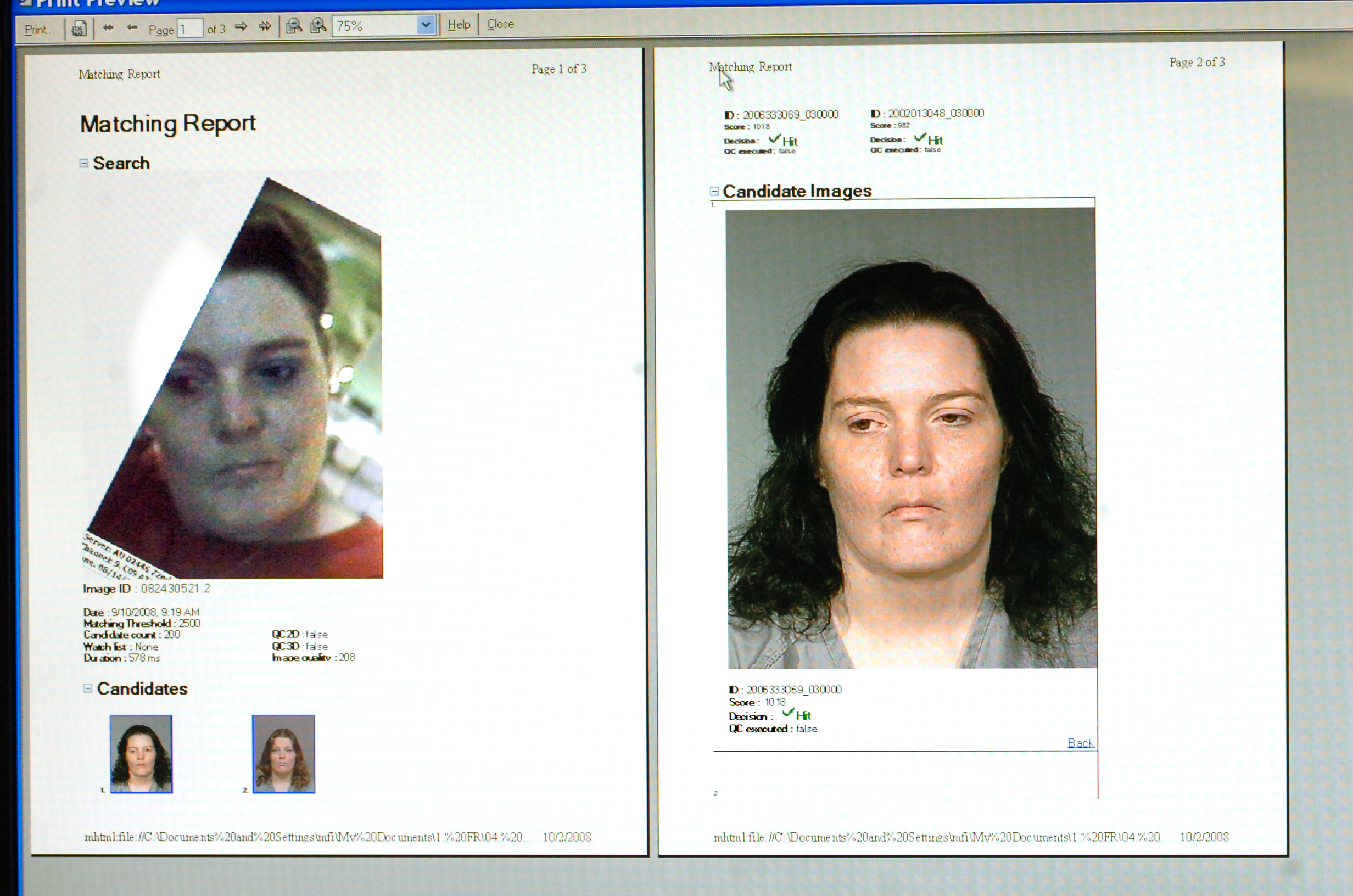A coalition of civil liberties groups are calling for a Department of Justice investigation into police facial recognition databases, after a damning report released Tuesday found that roughly half of American adults appear in the unregulated databases.
On Tuesday, the American Civil Liberties Union, along with 51 other advocacy groups, wrote a letter decrying the technology – which is being used by a growing number of law enforcement agencies across the country – for its lack of oversight and potential to disproportionately affect communities of color.
So far, no state has passed a comprehensive law regulating police departments’ use of the technology, according to the report by the Center on Privacy and Technology at Georgetown University’s law school.
The report also noted that police departments’ use of the technology poses privacy and free speech concerns – especially when photos are taken surreptitiously or via public surveillance at protests or demonstrations.
“Face recognition technology has enormous civil liberties implications and its use must be closely examined to ensure that it is not violating Americans’ civil rights,” the ACLU’s letter said. “The safeguards to ensure this technology is being used fairly and responsibly appear to be virtually nonexistent.”
Technological bias
Although some police departments tout their technology as being free of racial bias, African Americans are particularly vulnerable to racial profiling as a result of the technology.
Previous studies have found that facial recognition algorithms tend to be less accurate on African Americans than Caucasians, and the report noted that African Americans are typically overrepresented in mugshot databases anyway.
"If the suspect is African American rather than Caucasian, the system is more likely to erroneously fail to identify the right person, potentially causing innocent people to be bumped up the list - and possibly even investigated," the report said.
The lack of both internal and external input on police departments' use of the technology also stood out; of the 52 local and state law enforcement agencies evaluated, just one of them had been reviewed and approved by elected officials, and just four had created use policies that are available to the public.
"With little to guide them, most - though not all - police departments have not taken adequate steps to rein in this surveillance technology," the report argued.
"Face recognition can and should be used to respond to serious crimes and public emergencies. It should not be used to scan the face of any person, at any time, for any crime."

